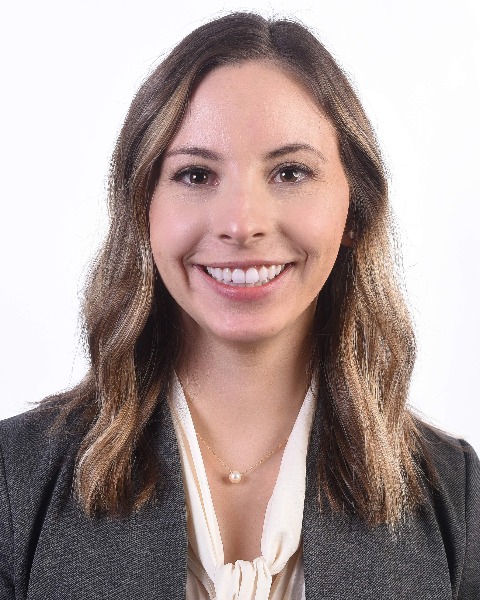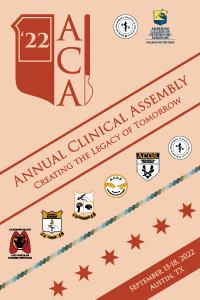General Surgery
Support for Osteopathic Medical Students Pursuing Surgery: A Comparison of Perceived Supportive Measures Between Deans of Osteopathic Medical Schools and DO Students Pursuing Surgery
Thursday, September 15, 2022
3:20 PM - 3:30 PM East Coast USA Time
Location: JW Grand Ballroom 5-6
Reference 1: National Resident Matching Program, Results and Data: 2022 Main Residency Match®. 2022. Accessed: August 24, 2022. https://www.nrmp.org/wp-content/uploads/2022/05/2022-Main-Match-Results-and-Data_Final.pdf
Reference 2: Results of the 2021 NRMP Program Director Survey. 2021. Accessed: August 24, 2022. https://www.nrmp.org/wp-content/uploads/2021/11/2021-PD-Survey-Report-for-WWW.pdf
Reference 3: Heard M A, Buckley S E, Burns B, et al. (March 05, 2022) Identifying Attitudes Toward and Acceptance of Osteopathic Graduates in Surgical Residency Programs in the Era of Single Accreditation: Results of the American College of Osteopathic Surgeons Medical Student Section Questionnaire of Program Directors. Cureus 14(3): e22870. doi:10.7759/cureus.22870
Reference 2: Results of the 2021 NRMP Program Director Survey. 2021. Accessed: August 24, 2022. https://www.nrmp.org/wp-content/uploads/2021/11/2021-PD-Survey-Report-for-WWW.pdf
Reference 3: Heard M A, Buckley S E, Burns B, et al. (March 05, 2022) Identifying Attitudes Toward and Acceptance of Osteopathic Graduates in Surgical Residency Programs in the Era of Single Accreditation: Results of the American College of Osteopathic Surgeons Medical Student Section Questionnaire of Program Directors. Cureus 14(3): e22870. doi:10.7759/cureus.22870

Grace Young
Student
A. T. Still University - Kirksville College of Osteopathic Medicine
A. T. Still University - Kirksville College of Osteopathic MedicineDisclosure(s): No financial relationships to disclose
Primary Presenter(s)
Disclosure(s):
Grace Young: No financial relationships to disclose
Introduction/Purpose: Since the implementation of a single accreditation system for graduate medical education, osteopathic medical students have seen declining match rates into surgical specialties. Prior studies have shown that osteopathic medical students have difficulty accessing certain opportunities that could help make them more competitive applicants. We conducted a survey that was sent to deans of colleges of osteopathic medicine and first through fourth year osteopathic medical students interested in pursuing a career in surgery regarding supportive measures currently in place and perception of what is most important to match into a surgical residency.
Methods or Case Description: After IRB approval, a voluntary, anonymous survey was sent to all of the American College of Osteopathic Surgeons - Medical Student section (n = 4339) and the deans of all colleges of osteopathic medicine (n = 43). The survey was a parallel set of questions that used Qualtrics logic to assign participants either the Dean questions or student questions. Results were then analyzed using R statistical software.
Outcomes: 406 responses were recorded from 4339 students who received the survey (9.4% response rate), and 17 responses were recorded from 43 deans who received the survey (30.5% response rate). Deans were less likely than students to indicate that it was their opinion that students pursuing surgical residencies need to take both COMLEX and USMLE examinations (p < 0.01). Students at COMs that offer in-person career advising feel that their COM better prepares them to match into a surgical residency (p < 0.01). Students at COMs that offer relevant/appropriate mentor pairing to gain exposure to surgery feel that their COM better prepares them to match into a surgical residency (p < 0.01). Deans were more likely than students to indicate that their COM offers relevant/appropriate mentor pairing for students interested in surgery to gain exposure to the field (p < 0.01).
Conclusion: Even when opportunities to encourage and assist osteopathic medical students in their pursuit of surgery exist, many students are unaware of them. There are concrete measures which COMs can undertake to ensure students feel more supported in pursuing a surgical career; many of these measures are shown to improve match outcomes by other studies. When COMs have these measures in place, they should advertise them to students and make them easily accessible. COM deans are less likely to recommend taking both Level 1 and Step 1 despite students feeling that taking both exams enhances their application and outside data showing that taking Step 1 increases match rates for osteopathic medical students.
Methods or Case Description: After IRB approval, a voluntary, anonymous survey was sent to all of the American College of Osteopathic Surgeons - Medical Student section (n = 4339) and the deans of all colleges of osteopathic medicine (n = 43). The survey was a parallel set of questions that used Qualtrics logic to assign participants either the Dean questions or student questions. Results were then analyzed using R statistical software.
Outcomes: 406 responses were recorded from 4339 students who received the survey (9.4% response rate), and 17 responses were recorded from 43 deans who received the survey (30.5% response rate). Deans were less likely than students to indicate that it was their opinion that students pursuing surgical residencies need to take both COMLEX and USMLE examinations (p < 0.01). Students at COMs that offer in-person career advising feel that their COM better prepares them to match into a surgical residency (p < 0.01). Students at COMs that offer relevant/appropriate mentor pairing to gain exposure to surgery feel that their COM better prepares them to match into a surgical residency (p < 0.01). Deans were more likely than students to indicate that their COM offers relevant/appropriate mentor pairing for students interested in surgery to gain exposure to the field (p < 0.01).
Conclusion: Even when opportunities to encourage and assist osteopathic medical students in their pursuit of surgery exist, many students are unaware of them. There are concrete measures which COMs can undertake to ensure students feel more supported in pursuing a surgical career; many of these measures are shown to improve match outcomes by other studies. When COMs have these measures in place, they should advertise them to students and make them easily accessible. COM deans are less likely to recommend taking both Level 1 and Step 1 despite students feeling that taking both exams enhances their application and outside data showing that taking Step 1 increases match rates for osteopathic medical students.
Learning Objectives:
- Upon completion, participants will be able to define the perceptions of students and osteopathic medical school deans' on matching into a surgical specialty.
- Upon completion, participants will be able to identify actionable tasks to help better prepare osteopathic medicial students apply for surgical residencies.
- Upon completion, participants will be able to conduct enhanced mentorship of osteopathic medical students interested in surgery.


